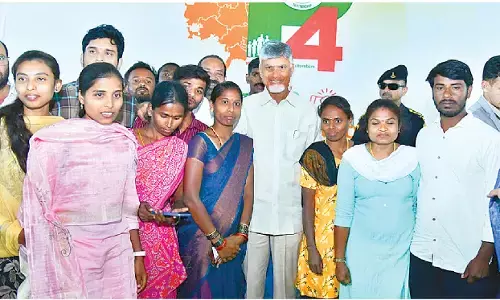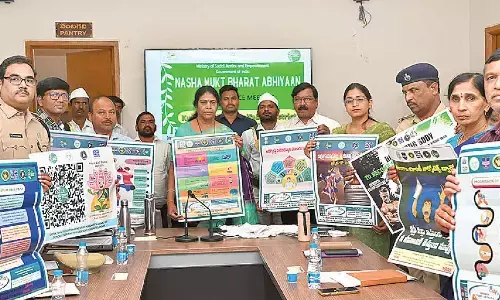Food safety: Is your food killing you?

Food Safety: Is Your Food Killing You. People everywhere are asking a crucial question that our lives hinge upon: What exactly is going into the food we are consuming? This question has become a global predicament. Listed below are several important points worth considering.
.jpg) Recently, it was found that the well-known noodle brand Maggi contained lead beyond permissible levels. So is it the turn of other brands to face the brunt now?
Recently, it was found that the well-known noodle brand Maggi contained lead beyond permissible levels. So is it the turn of other brands to face the brunt now?
People everywhere are asking a crucial question that our lives hinge upon: What exactly is going into the food we are consuming? This question has become a global predicament. Listed below are several important points worth considering.
Challenges of food safety
Negligence in feeding contaminated fodder to animals
Deliberate addition of emulsifiers, taste enhancers to products
Mislabelling of products
Environmental pollution
Contamination at every step of the process i.e., from farm to plate
Raw materials are often not stored appropriately, which also leads to wastage.
FSSAI often does not monitor the quality of raw materials too. Example: midday meals in schools where rice is stored in poor conditions.
Common adulterants found in food
Natural fruits and vegetables are treated with chemicals. Example: Mangoes are ripened using Calcium Carbide, which has carcinogenic properties
Synthetic dye is added to tea so that it can be reused several times
Permitted colours found in packaged foods are a by-product of tar
Milk contains urea and caustic soda (used in cleaning agents)
Kesari dal, sold as Bengal gram and red gram can cause crippling effects
The hormone Oxytocin is injected in plants to promote growth. Oxytocin is a hormone found in pregnant women, and foods that contain it are known to cause hormonal disorders in both men and women
Simple ways to detect adulterants in food
For green peas, chillies and other vegetables: Place a small portion of the sample on a moistened white blotting paper. If the paper indicates colour, then colour has been added to the vegetables.
For turmeric and pulses: Dissolve half a spoon of besan or turmeric powder in 20 ml lukewarm water. Add a few drops of hydrochloric acid or any commonly available acid. If the water turns pink, violet or purple, it shows the presence of added colour.
Food safety tips
Separate raw and cooked food to avoid cross contamination
Cook food thoroughly to kill dangerous microorganisms
Use safe water and raw materials to prevent contamination
Cut down consumption of saturated fats and Transfats
Use olive oil and oils rich in Monounsaturated fat (MUFA)/Polyunsaturated fat (PUFA)
Keep refrigerator temperature at 4 degrees Celsius or less
Refrigerate foods within 2 hours after cooking
Don’t serve raw eggs for consumption
Defrost animal foods in cold water/ fridge
Cook animal foods thoroughly above 75C
Maintain adequate hygiene of kitchen equipment
Consume more whole grains to help lower blood cholesterol and blood sugar levels.
Eat more fruits and vegetables
Other points worth noting
Most endocrine disorders like Thyroidism are due to use of plastics for food items.
Breast milk is also not risk-free due to the mother’s consumption of adulterated food.
Organic foods and ayurvedic products are being increasingly trusted, yet their safety is a questionable factor.
(Inputs from a panel discussion on Food Safety and Consumer Rights held on July 20, at Goethe Zentrum, Hyderabad. The panelists were G Santhanarajan, director-in-charge of CONCERT (Centre for Consumer Education, Research, Training and Testing); Rajam Ganesan, consumer activist and Radhika Subramanyam, TÜV Rheinland.)
Note: CONCERT is a partner institute of Consumers Association of India (CAI) which designed the Annam Spot Test Kit containing reagents which detect adulterants in 33 everyday food products like milk, tea and ghee. It costs Rs 950 and is available for purchase on contacting CAI.
Elita Enoch
















